Dissociative Identity Disorder (DID), formerly referred to as multiple personality disorder, is a complex psychological condition that often arises in response to overwhelming trauma, most commonly in early childhood. At Wholesome Psychology, we offer trauma-informed, compassionate, and evidence-based dissociative identity disorder counseling in Edmonton and St. Albert, supporting adults, teens, and families navigating life with DID and related dissociative challenges. Learn about our services or contact us to get started.
Understanding Dissociative Identity Disorder
DID is marked by two or more distinct identity or personality states, each with its own way of experiencing, perceiving, and interacting with the world. For those affected, daily life can become a struggle with memory gaps, periods of amnesia, and sudden shifts in mood, behavior, and self-perception that can be distressing and difficult to explain to others. Dissociation is a natural response to overwhelming stress or trauma, but when it becomes persistent or disruptive, it may signal the presence of DID or another dissociative disorder.
- Core features: Presence of two or more distinct identities, memory gaps, and significant distress.
- Common causes: Severe, repeated trauma in early development, such as abuse or neglect.
- Associated symptoms: Anxiety, depression, self-harm, mood swings, or struggles with relationships.
DID exists on a spectrum of dissociative disorders. To read more about related conditions, visit our page on dissociative disorders.
Signs and Symptoms of Dissociative Identity Disorder
Recognizing DID can be challenging, as symptoms often overlap with other mental health conditions and may be hidden due to shame or fear of disbelief. Common signs include:
- Memory blackouts or time loss not explained by ordinary forgetfulness
- Feeling as if there are “other people” inside, or being told of behaviors you don’t remember
- Sudden shifts in skills, interests, handwriting, or voice
- Difficulties maintaining continuity in relationships or work
- Disconnection from identity, body, or environment (depersonalization, derealization)
- Flashbacks, nightmares, or intense emotional reactions to specific triggers
- Confusion about personal information or possessions “appearing out of nowhere”
If these experiences sound familiar, you are not alone. DID is commonly misunderstood, yet skilled psychological support is available in Edmonton and St. Albert. Learn more about trauma therapy or adult counseling.
How DID Counseling at Wholesome Psychology Can Help
Seeking therapy for DID is a courageous step. Our psychologists and therapists are experienced in working with trauma and dissociation, and provide a nurturing, nonjudgmental environment where all parts of your experience are respected and valued.
Our Approach to DID Therapy
- Trauma-Informed Care: All therapy is grounded in deep respect for your lived experience and the ways your mind and body have coped with past trauma.
- Attachment and Relationship-Focused: We prioritize building a safe connection and work collaboratively with all parts or identities present.
- Integrated Modalities: We use evidence-based modalities such as Internal Family Systems (IFS), EMDR (Eye Movement Desensitization and Reprocessing), psychodynamic therapy, and elements of cognitive-behavioral interventions, always tailored to your pace and needs.
- Skill Building: Sessions often focus on grounding, emotion regulation, building internal cooperation among identities, and safely processing trauma memories when ready. See more about our psychodynamic therapy approach.
- Holistic Wellness: Attention to your unique strengths, creativity, and resources helps guide recovery and reduce shame.
What to Expect in DID Counseling
In your initial sessions, your therapist will work with you to establish safety, stability, and trust. It’s common to spend early sessions learning about your history, your experience of dissociation, and ways you already cope. Therapy progresses at your comfort level—nothing is rushed or forced.
Over time, counseling may help you:
- Develop awareness and acceptance of your unique experience
- Foster greater cooperation or communication among identities
- Process and integrate traumatic memories, when appropriate
- Reduce dissociative episodes and symptom distress
- Build resilience, self-compassion, and confidence in daily life
Our therapists can also support you in coordinating care with medical professionals and support systems, with your consent. Learn about our unique approach.
Who Can Benefit from DID Counseling?
DID can occur in children, adolescents, and adults. Adults living with DID often seek help for chronic depression, anxiety, relationship difficulties, or distress about lost time. Teens and young adults may experience confusion, trouble with impulse control, or academic and social challenges tied to dissociation. If your loved one may be living with DID, therapy can also help you understand, support, and care for them with empathy and appropriate boundaries.
For more on related conditions and trauma work, see our pages on trauma therapy and borderline personality disorder. If you are supporting a child or youth, explore our child and youth counseling services.
Our Experienced, Compassionate Team
Wholesome Psychology is a team of dedicated, trauma-trained psychologists and therapists. We strive to help each person feel understood, respected, and empowered to reclaim their narrative. Each member of our team shares a passion for ethical, culturally informed mental health care. Meet our team here and find a therapist you feel comfortable with.
Your Safe Space in Edmonton & St. Albert
We recognize the immense courage required to seek help for DID or any dissociative disorder. Our offices in Edmonton and St. Albert are designed for privacy and comfort. Whether you are newly exploring a diagnosis or have been living with DID for many years, we are here to support your healing journey. North Edmonton psychologists and St. Albert psychologists are available to help.
If you are ready to begin or wish to learn more, contact us to schedule a confidential consultation today. Every journey is unique—and we are committed to walking alongside you.
Further Reading & Resources
If you have questions about our approach to dissociative identity disorder counseling or wish to discuss your unique concerns, reach out anytime. Serving the Edmonton and St. Albert communities with empathy, knowledge, and integrity.
